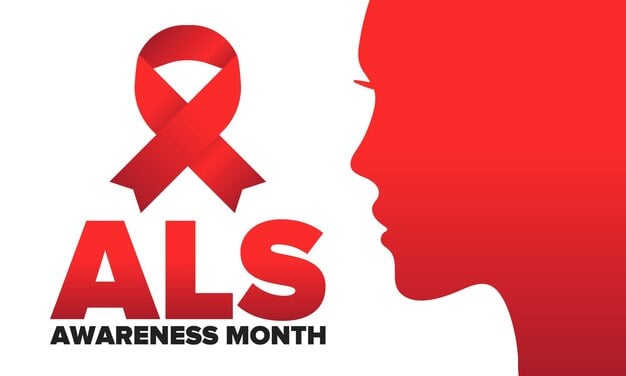Every August, we observe National Immunization Awareness Month (NIAM), an event that educates and encourages everyone to keep up with their vaccinations. While healthcare providers continue to play important roles in education and supporting public health, the rest of us can read up on what vaccines are needed, vaccination schedules, and provide outreach to ensure that we and our neighbors remain safe and healthy from preventable diseases.
Perhaps one of the best things about awareness months, even if they bring focus to maladies and situations that are not always pleasant, is to get people interested to learn about the topic, and if they're interested enough, they'll do something to help out. This is the case with amyotrophic lateral sclerosis, or ALS. Some time back, there was the Ice Bucket Challenge which went viral, involved numerous athletes and celebrities and common people, and raised a ton of money for research and to support the afflicted people around the world. Yet, although I know it is a motor neuron disease and that it has affected famous people like the late brilliant physicist Stephen Hawking and more recently, the respected baseball media personality and fellow UChicago alum Sarah Langs (she's not even that old!), I found that I knew remarkably little about the disease itself. So this May, which is ALS Awareness Month, let's learn a little bit more together.
Parkinson's Disease (PD) remains the second-most common neurodegenerative disorder behind Alzheimer's Disease, and the incidence of patients being diagnosed with PD will only rise as we all get older. With this in mind, much personnel and resources are dedicated to discovering more about this disease and to develop better treatments and management strategies to improve the livelihoods of those afflicted with PD. April is Parkinson's Awareness Month, and this is a perfect time for us not only to raise funds and awareness to help PD patients, but also to learn about how companies like ABclonal can help accelerate the research behind PD onset and progression. Here, we highlight studies using ABclonal products that were published within the past year that add new insights into Parkinson's research.
There was a fun seminar with a guest speaker once upon a time when I was in graduate school where he put the physiological effects of stress into perspective. I can't remember his name now, but the gist was that if you imagine yourself as an animal fighting for survival, you are very likely to want to keep the body ramped up to run or fight rather than to fight infection, digest, or reproduce. In a human context, when the person is under pressure due to a huge work project or some other external force derived from a crushing mountain of responsibility, they are thrust into a situation where the body and mind think that they are in a "fight or flight" mode and that can lead to many physical and psychological detriments. Although what we do in science is important and requires lots of work, it is important to realize that good science is harder to do if we are overcome with stress, so let's find some ways to manage stress so we can be more productive and healthy.
At the turn of the millenium, actor Michael J. Fox, whom you might remember from the Back to the Future films and Family Ties if you're a certain age, had to depart the cast of the popular sitcom Spin City because he was diagnosed with Parkinson's Disease. I was a frequent viewer of the show (and of course I watched Back to the Future, and so should you) so it was a shock to the system to see a man who was still so vibrant and young have to take a step back from his profession because of that diagnosis. April is Parkinson's Awareness Month, which you can read more about from Fox's foundation and others, and in this post I thought we could learn more about this disorder together as humanity works towards an eventual cure.
Remember once upon a time when I said my first actual laboratory research project involved myelin basic protein? Other than knowing that the mother of one of my high school friends had been diagnosed with it, this was the first real exposure I had with multiple sclerosis. I eventually learned more about the immune system and autoimmunity, and the thought of your own body attacking your literal nerve cells was scary and made me feel for the people who have to live with and manage this disease every day. March happens to be Multiple Sclerosis Awareness Month, which as the name suggests works to make sure the public knows about multiple sclerosis, develops empathy and understanding for afflicted individuals, and encourages participation in events and activities to spread awareness. In this blog, let's explore the disease, current treatment strategies and ongoing research, and ways that you can help both in and out of the lab.








